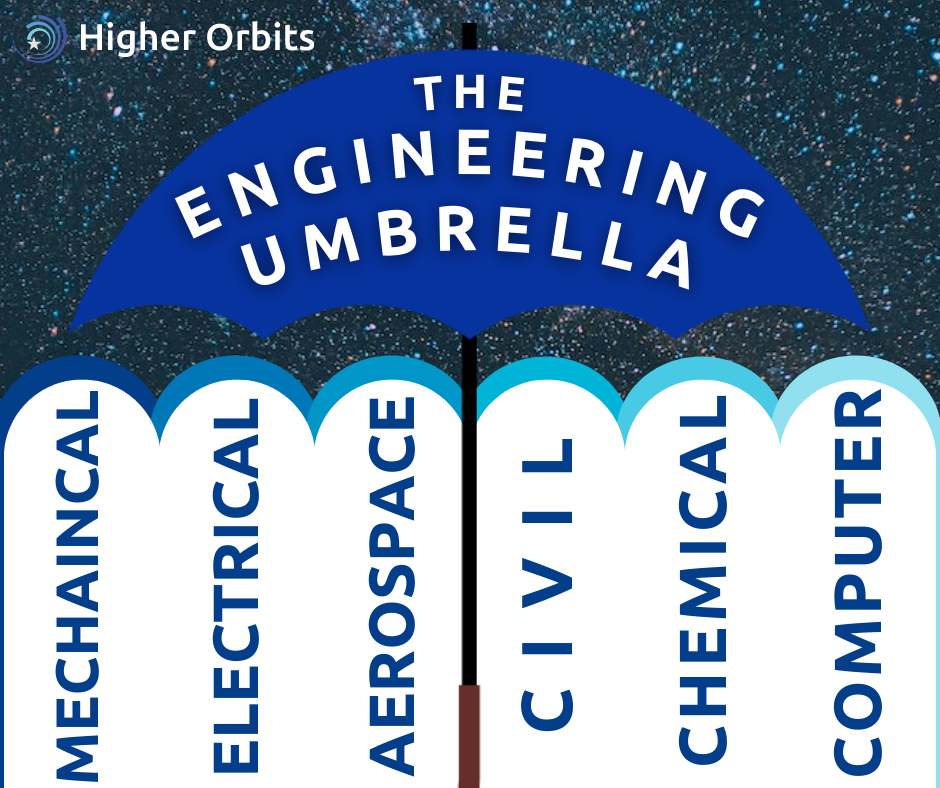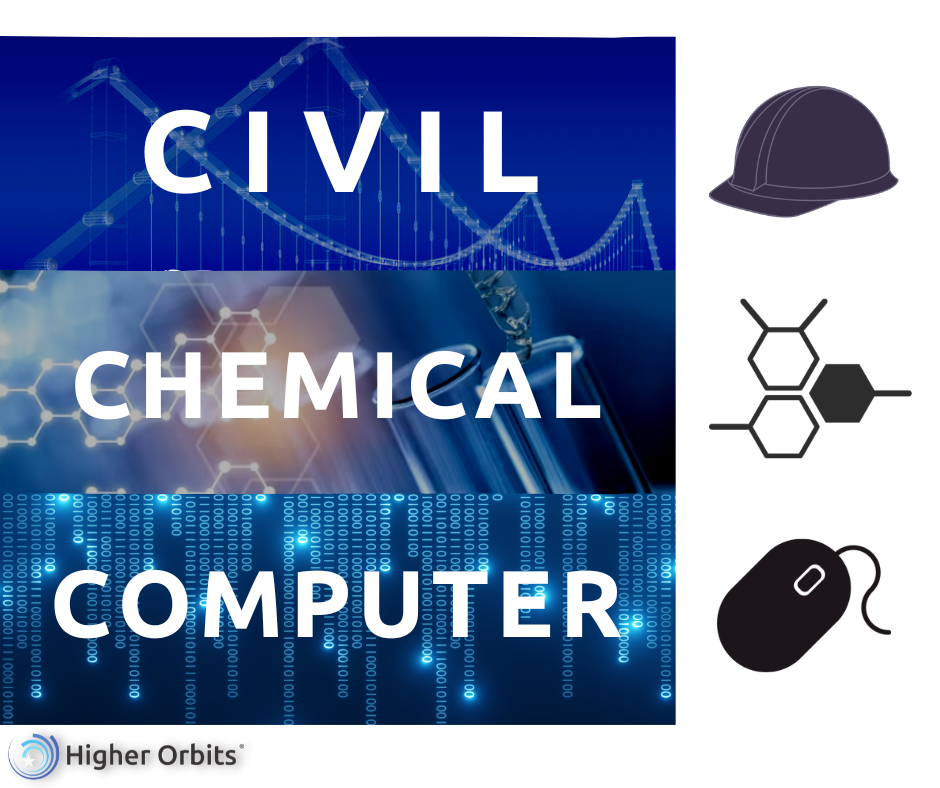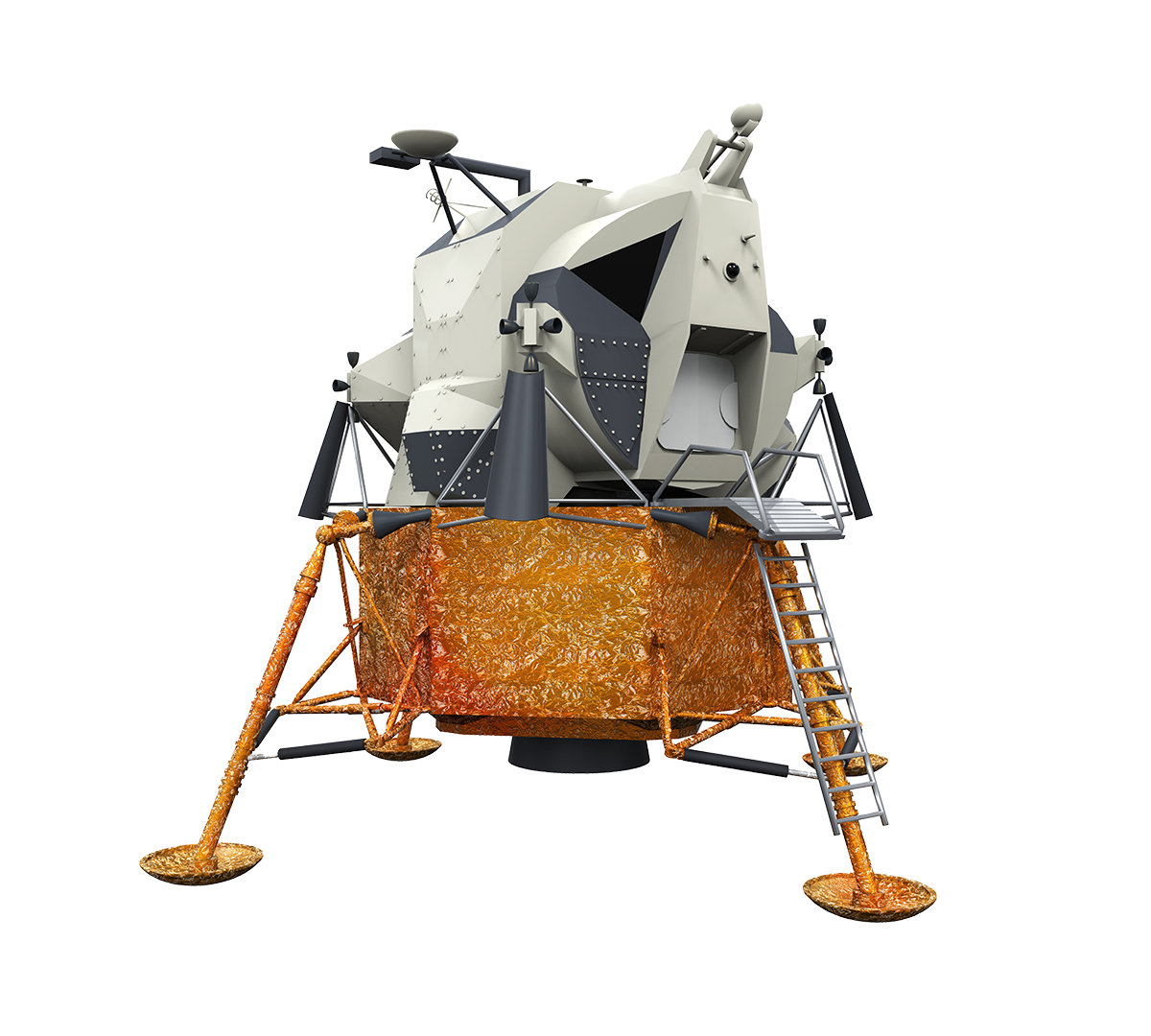Engineering is a vast and dynamic field that plays a crucial role in shaping our modern world. Combining the applications of mathematics, physics, mechanics, and other sciences helps drive research and development for new technologies and projects around the world.
Thousands of positions in engineering open every year! From designing innovative structures to developing advanced technologies, engineers are at the forefront of innovation and problem-solving. As a direction of study, the term ‘engineering’ is an umbrella term with many vastly different branches to choose from. Most branches of engineering involve studying a foundational set of mathematics, physics, and computer science to build a solid understanding of the fundamental principles. In choosing a specialization, there are many different career paths that engineering offers.
The most common engineering disciplines that can be studied at a college or university include mechanical engineering, electrical engineering, aerospace engineering, civil engineering, chemical engineering, and computer engineering. Some schools may also offer degrees in other fields, such as biomedical engineering, industrial engineering, or other specializations. With numerous engineering disciplines to choose from, it can be challenging to navigate through the various career paths and educational requirements. In this blog, we will explore some of the different common fields of engineering and shed light on the average work life and educational prerequisites for each.
Mechanical Engineering
Mechanical engineering revolves around the study, design, analysis, and manufacturing of mechanical systems. This discipline encompasses a wide range of industries, including automotive, aerospace, energy, and robotics. While more specific directions of study , such as aerospace engineering or automotive engineering, are available in some universities, an industry-specific degree is not a mandatory prerequisite to enter their respective industries. As they progress, students delve into courses such as mechanics, materials science, thermodynamics, and fluid mechanics, enabling them to understand the behavior of materials and fluids and their applications in mechanical systems.
They also study topics like heat transfer, control systems, and machine design to develop proficiency in designing and optimizing mechanical components and systems. Mechanical engineering has versatile applications in many lucrative fields. To become a mechanical engineer, a bachelor's degree in mechanical engineering is usually required, although certain roles may require a master's degree or specific certifications. Work environments can include research labs, manufacturing facilities, or offices, and may involve design, testing, and collaboration with multidisciplinary teams.
Electrical Engineering
Electrical engineering deals with the study and application of electricity, electromagnetism, and electronics. It involves studying, designing, and developing electrical systems, power generation, and transmission equipment. A bachelor's degree in electrical engineering is typically the minimum requirement for entry-level positions, although advanced positions or research-oriented roles may require a master's or doctoral degree. Courses detail topics such as circuit analysis, electronics, digital systems, and electromagnetism to understand the operation of electrical components and systems. Power systems, control systems, and signal processing are also integral parts of the curriculum, as they equip students with the knowledge needed to design, analyze, and optimize electrical systems.
Additionally, courses in communications, microprocessors, and semiconductor devices deepen students' understanding of advanced technologies and their applications. Electrical engineers often work in laboratories, manufacturing plants, or research institutions, focusing on system design, testing, and implementation. Research and development is constantly ongoing for electrical engineers. New high-tech projects and technology are only possible through the developing electronics and applications of this incredible science.
Aerospace Engineering
Aerospace engineering deals with the design, development, and testing of aircraft, spacecraft, and related systems. This field of study encompasses multiple specializations, most common being aeronautical engineering (aircraft) and astronautical engineering (spacecraft). As in other disciplines of engineering, aerospace engineering programs typically include coursework in mathematics, physics, and computer science to establish a solid foundation in fundamental principles. Students also study aerodynamics, propulsion systems, flight mechanics, control systems, materials science, and structural analysis to gain expertise in designing and analyzing aircraft and spacecraft.
Additionally, courses in thermodynamics, fluid mechanics, and electrical systems are integral to understanding the complexities of aerospace engineering. Aerospace engineers often work for government agencies, defense organizations, or private aerospace companies. A bachelor's degree in aerospace engineering is generally required, and advanced positions may require higher degrees or specialized certifications. Work life can include conceptual design, structural analysis, propulsion systems, and aerodynamic testing.
Civil Engineering
Civil engineering focuses on designing and constructing infrastructure projects such as buildings, bridges, roads, and dams. Civil engineers often collaborate with architects, urban planners, and construction teams. Students pursuing this field delve into specialized areas such as structural analysis, geotechnical engineering, transportation engineering, and environmental engineering.
These subjects equip them with the knowledge to design and analyze various structures, including buildings, bridges, and roads, while considering factors such as materials, environment, load-bearing capacities, and safety regulations. A bachelor's degree in civil engineering is typically required for entry-level positions, while roles with more specialization may require a master's degree or other specialized certifications such as specific project experience. Work life varies but may involve a combination of site visits, project management, and design work.
Chemical Engineering
Chemical engineering combines principles of chemistry, physics, and mathematics to design and operate industrial processes that transform raw materials into valuable products. Chemical engineers work in diverse fields, such as pharmaceuticals, petroleum, food processing, and environmental engineering. A bachelor's degree in chemical engineering is typically required, and advanced positions or research roles may require a higher degree of study.
To design and optimize chemical processes, analyze reaction kinetics, and understand the behavior of fluids and mass within systems, a chemical engineering program offers education in thermodynamics, fluid mechanics, mass transfer, and chemical reaction engineering. This translates into the work environment where chemical engineers apply knowledge in various industries such as pharmaceuticals, petroleum, food processing, and environmental engineering, contributing to the development of innovative and sustainable solutions. Work life can involve laboratory experiments, process optimization, safety analysis, and product development.
Computer Engineering
Computer engineering focuses on the design and development of computer hardware and software systems. With the digital world consistently expanding there are a plethora of new opportunities for computer engineers. This field encompasses areas such as computer architecture, embedded systems, software engineering, and networking. A bachelor's degree in computer engineering, electrical engineering, or computer science is typically required for entry-level positions, with some organizations also valuing relevant certifications. Studying computer engineering let’s students learn about digital logic design, computer architecture, operating systems, and software engineering. These subjects equip students with the knowledge to design and develop computer hardware and software systems, including microprocessors, memory systems, and embedded systems.
Coursework may also include topics such as computer networks, algorithms, data structures, and programming languages, enabling computer engineers to build robust and efficient systems. Students may also explore areas like artificial intelligence, computer vision, and cybersecurity, gaining insights into emerging technologies and their applications. Work environments can range from software development companies to research labs, and tasks may involve coding, system analysis, and hardware design.
Engineering offers a vast array of exciting career paths, each requiring specific educational prerequisites and offering unique work life experiences. Whether you aspire to build towering structures, develop cutting-edge technology, or pioneer space exploration, the field of engineering has something for everyone. Engineering is an incredible field where scientific applications are put to use to progress technological achievements. By understanding the different disciplines and their educational requirements, you can embark on a rewarding journey towards becoming an engineer in your chosen field. Remember, the engineering world thrives on innovation, creativity, and dedication!



